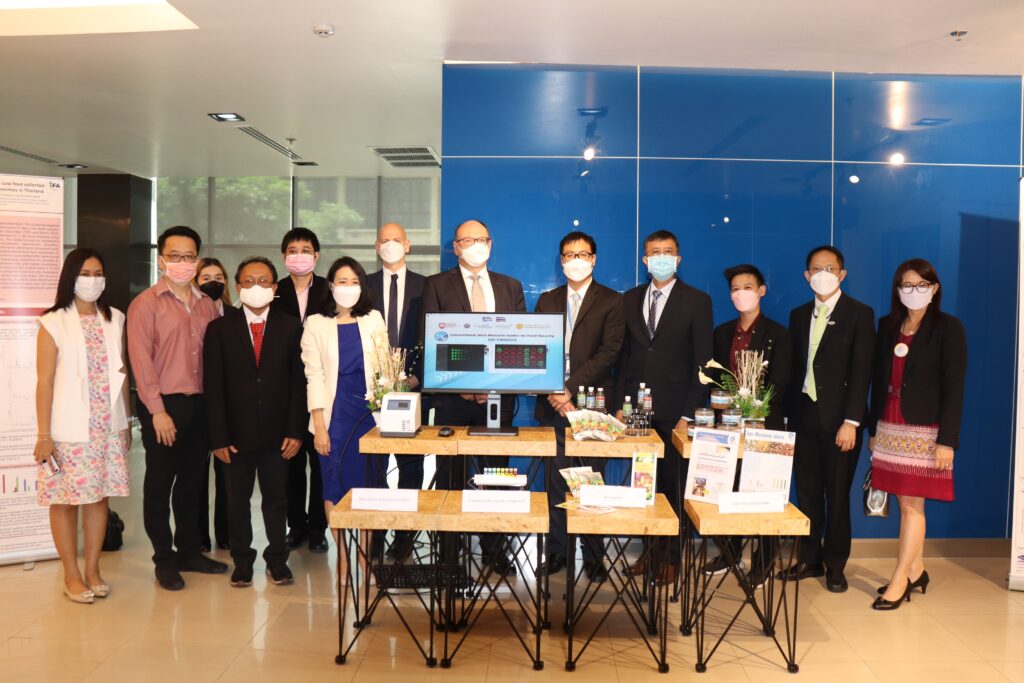The Launch of International Joint Research Center on Food Security (IJC-FOODSEC)
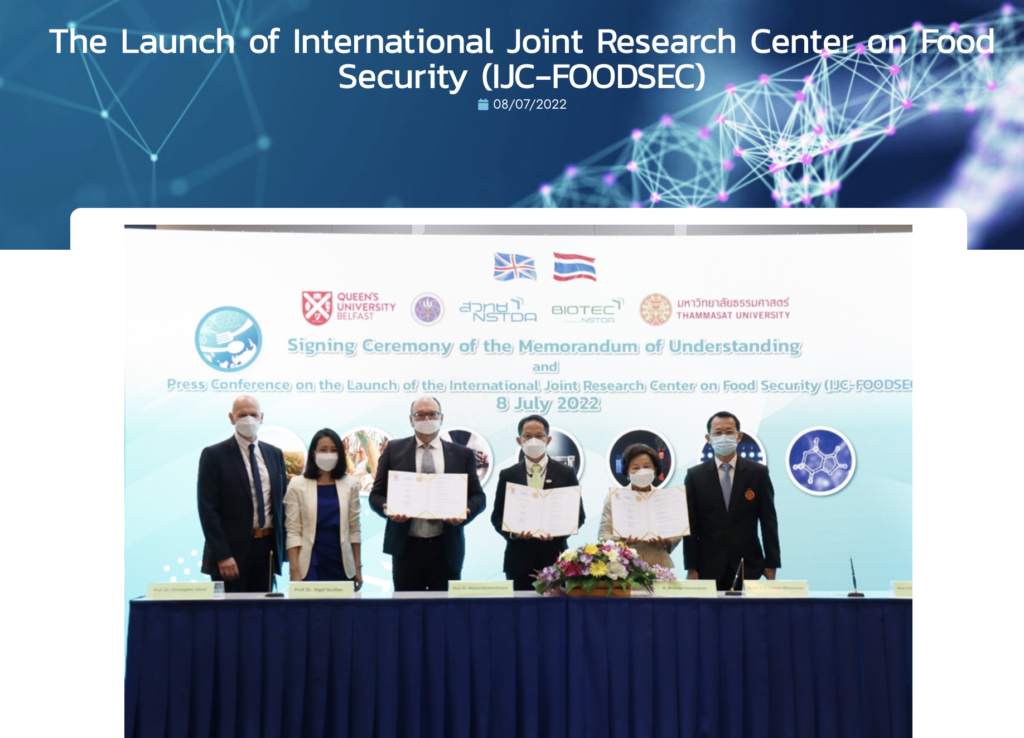
July 8, 2022 — Presided over by H.E. Prof. Anek Laothamatas, Thailand’s Minister of Higher Education, Science, Research and Innovation, a press conference on the establishment of the International Joint Research Center on Food Security (IJC-FOODSEC) was held by senior staff from Queen’s University Belfast (QUB), United Kingdom, National Center for Genetic Engineering and Biotechnology (BIOTEC)/ National Science and Technology Development Agency (NSTDA) and Thammasat University (TU).
The International Joint Research Center on Food Security initiative is a product of cooperation between BIOTEC and QUB, which has a proven track record for more than 10 years. In 2020, the bilateral collaboration was expanded to encompass cooperation with Thammasat University. The trilateral collaboration has generated an impact across many dimensions including joint research and development, capacity building of R&D personnel and students and collaborative research with the food and feed industries. In recognition of these notable achievements, senior QUB staff have agreed to support the establishment of the International Joint Research Center on Food Security (IJC-FOODSEC). The goal is to become a center of excellence for the entire ASEAN region.
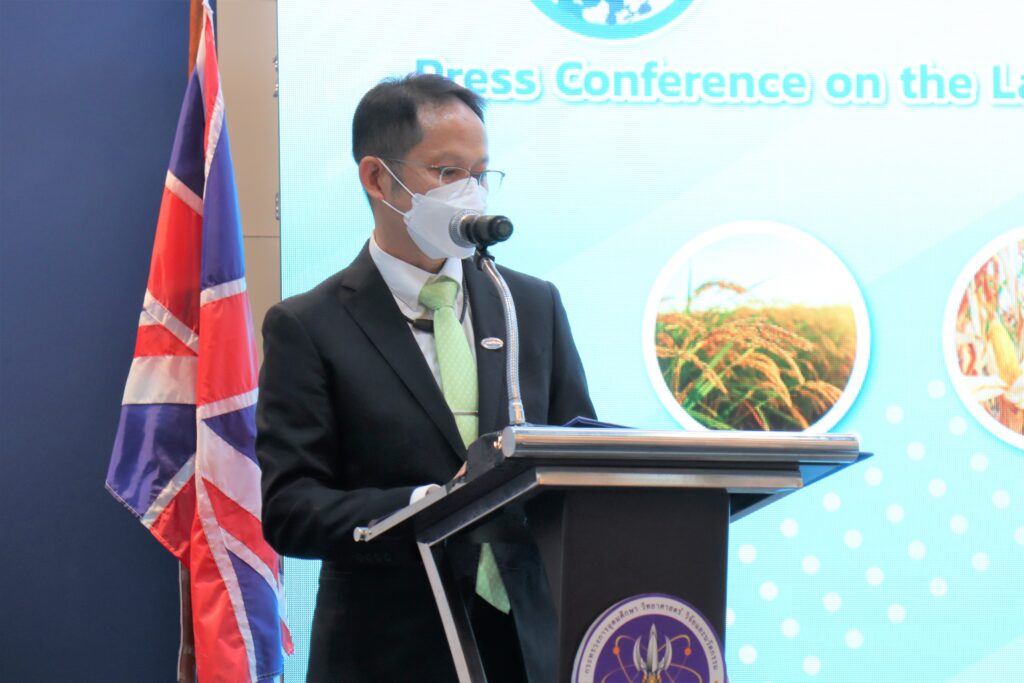
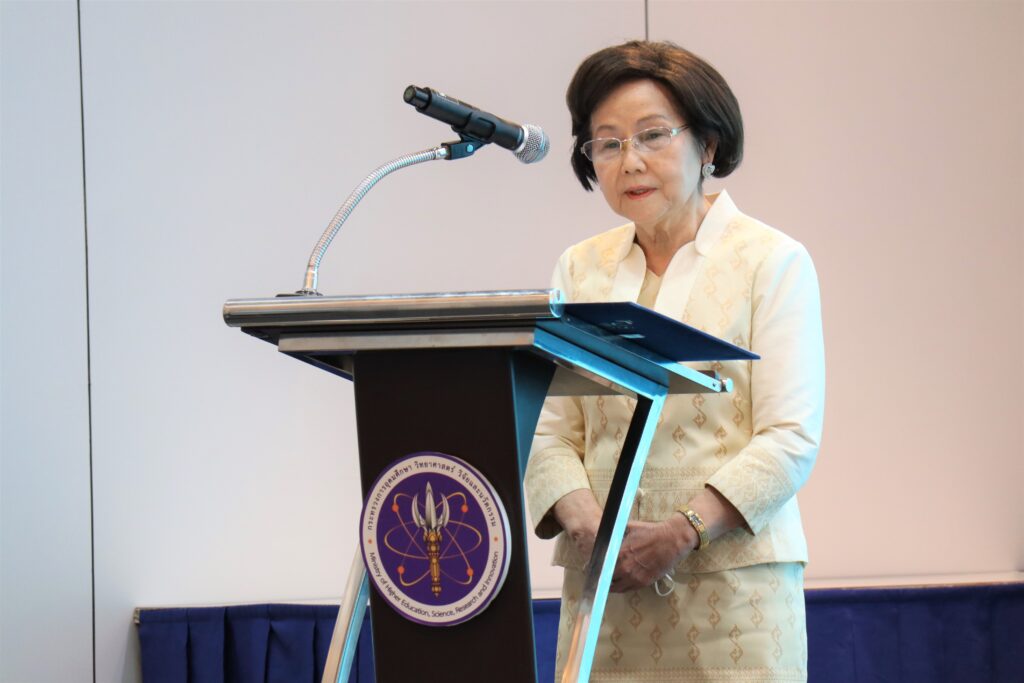
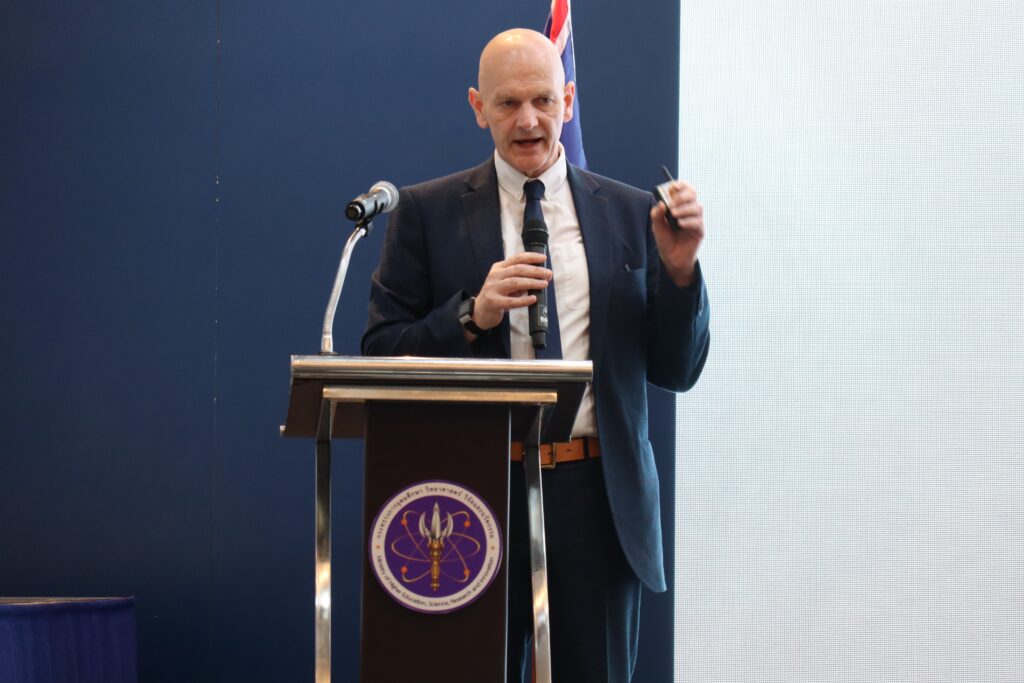
H.E. Prof. Laothamatas revealed that food is at the core of the Sustainable Development Goals (SDGs), the UN’s development agenda for the 21st century. Food security occurs when all people are able to access enough safe and nutritious food to meet their requirements for a healthy life. To achieve this goal by the target date of 2030, scientific advancements hold the key to address all the dimensions of food security. Thailand has long been called “the kitchen of the world” with its abundant natural resources, highly-skilled workforce, and strength in research. The food industry contributes around 6% of the country’s GDP. Thailand is also one of the largest net food exporting countries in the world and the second largest in Asia. The country is a perfect base for the IJC-FOODSEC to expand the R&D network across the ASEAN region.
To sharpen Thailand’s competitive advantage of the food industry, Thai research institutes and companies have relied on innovations to bring the sector forward. The National Center for Genetic Engineering and Biotechnology (BIOTEC), National Science and Technology Development Agency (NSTDA), has been at the forefront of research in food biotechnology.
Dr. Wonnop Visessaguan, Executive Director, revealed that “NSTDA has established the Sustainable Food and Functional Ingredient Agenda which consolidates our core capabilities in food biotechnology under one roof”. The program covers the development of technologies, processes and products to add value to local materials such as functional protein, personalized food, food safety evaluation and smart packaging. “The IJC-FOODSEC is an important piece of the puzzle to address not only national but global challenges, especially the integrity and quality of our food system” explained Dr. Visessanguan.
The IJC-FOODSEC will first concentrate on food safety projects, especially in contamination of feed and food, which are funded by funding agencies in Thailand. Prof. Chris Elliott OBE, Institute of Global Food Security, Queen’s University Belfast, one of the founding members of the IJC-FOODSEC, emphasized that “These projects are just a start. The IJC-FOODSEC will strive to undertake world-class research in world-class facilities in order to support the various spectrum of food security in the ASEAN region, with emphasis on food quality, food safety and food authenticity.”
Assoc. Prof. Gasinee Witoonchart, Rector, Thammasat University, stated that the IJC-FOODSEC places a strong focus on the needs and problems of the private sector. An R&D plan which addresses the needs of the industry from the start is critical to drive successful technology transfer to the industrial sector. A stakeholder’s Meeting was held especially for this purpose. The target sectors of the food and feed industries were well represented. The members of the IJC-FOODSEC have created technologies which have commercial viability to create impact on business and the society.”
The International Joint Research Center on Food Security is located at the National Center for Genetic Engineering and Biotechnology (BIOTEC). Its senior administrators include Prof. Chris Elliott, founding member and advisor, and co-directors, Prof. Dr. Nitsara Karoonuthaisiri, BIOTEC’s Principal Researcher, and Asst. Prof. Dr. Awanwee Petchkongkaew, Lecturer, Thammasat University.

About Queen’s University Belfast
Queen’s University Belfast is part of the elite UK Russell Group, combining excellence in research and education with a student-centred ethos.
More than 95% of research carried out at Queen’s is ranked as ‘world-leading’ or ‘internationally excellent’, according to the influential Research Excellence Framework (REF) independent assessment of UK universities, carried out in 2021.
The University has a strong track record in food science and food security. Agriculture, food & veterinary sciences were rated No 1 in the UK in REF 2021, with 94% of research in these areas declared world-leading/internationally excellent. Queen’s is also in the Global Top 200 for food science (Academic Ranking of World Universities 2021).
Additionally, food science at Queen’s is No 1 in the UK in the latest rankings carried out by the Complete University Guide (2022); the Guardian Universities Guide (2022); and the Times and the Sunday Times Good University Guide (2022).
The University’s Institute for Global Food Security (IGFS), founded by Professor Chris Elliott OBE, has received many distinctions, among them being named ‘Collaborating Centre’ by the UN’s International Atomic Energy Agency and hosting the Centre for Excellence in Agriculture and Food Integrity, in partnership with the UK National Measurement Laboratory.
IGFS was recently named part of a high-level, UK government-backed research network to advance the agri-food industry towards Net Zero carbon by 2050.
